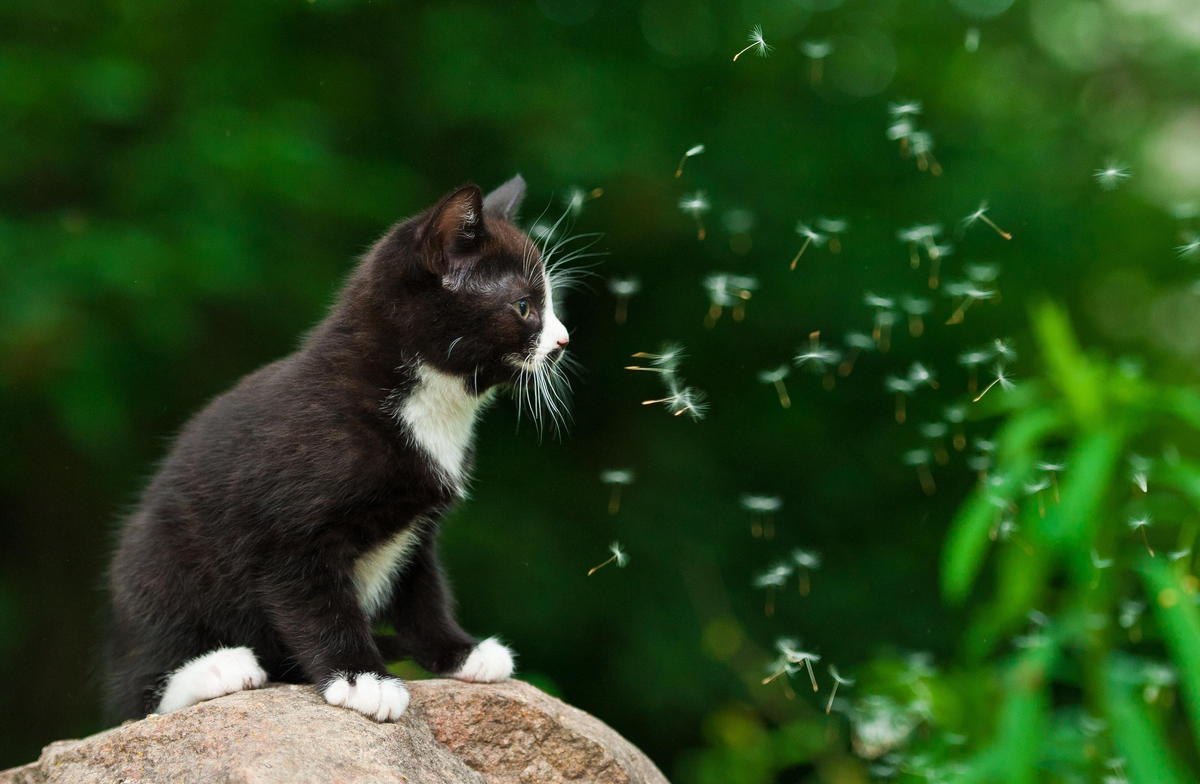Feline Asthma
- posted: Mar. 03, 2016
Feline Asthma
Most of us cat owners hear our cats make peculiar breathing sounds from time to time. Most often, it is the wheeze associated with trying to bring up a hairball. But when you are hearing your cat wheeze or cough on a weekly or daily basis, there is likely an underlying medical problem. Coughing, wheezing, increased breathing effort and rate in cats can be caused by a variety of conditions including asthma, infectious pneumonia, heart failure and cancer.
Feline asthma is one of the most common reasons for respiratory issues in cats. Cats that develop asthma may have other manifestations of hypersensitivity including skin or gastrointestinal issues. Asthma, like in people, is typically triggered by airborne allergens. These can include pollens, molds, scented candles/air fresheners, and 2nd hand cigarette smoke.
Our first step in investigating your cat’s breathing issue is to obtain x-rays of the chest. Based on appearance of the lungs on x-ray, we can often diagnose the underlying problem. If the lung x-ray pattern is consistent with asthma, we will start treatment for your kitty. Steroids such as Prednisolone are the first line treatment to stabilize an asthmatic cat. On occasion, cats with asthma can present to our hospital with an “asthma attack” in which they are open-mouthed breathing, in distress and their gums may appear blue. This is an emergency that we treat by administering intravenous steroids and oxygen. In most cats, however, we are able to intervene with oral steroids before they reach this crisis point. After a couple of weeks on oral steroids, your cat should be breathing more comfortably and the coughing/wheezing episodes will have stopped. We then recommend transitioning your cat to inhaled “puffers” just like people with asthma take. We have a custom designed mask that makes using puffers straightforward for you and your cat.
Like in people, asthma in cats can come and go seasonally or persist daily. We customize the use of puffers with your cat to the lowest dosing and frequency that keeps them breathing well. If you notice coughing, wheezing or a change in breathing, give us a call right away.
Dr John Booth

Location
Find us on the map
Office Hours
8:00 am - 9:00 pm
8:00 am - 9:00 pm
8:00 am - 9:00 pm
8:00 am - 9:00 pm
8:00 am - 9:00 pm
9:00 am - 5:00 pm
Closed

